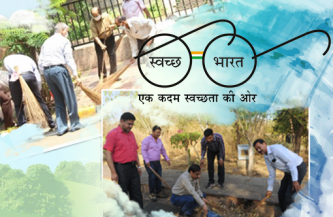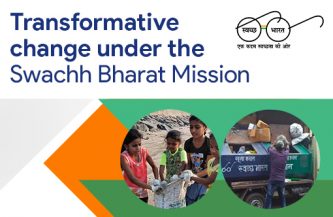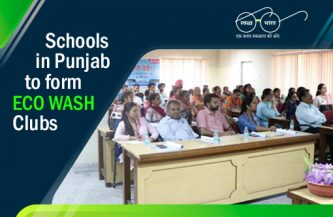Toilets help revive Weaving Industry

Intricate threadwork, motifs and vibrant colours describe the handloom weaves of Odisha that have gained national and international acclaim. Of these the Sambalpuri sarees handloom which is a centuries old traditional family occupation that has all members of a family working together, comes from Sonepur district also called Subarnapur district of the Sambalpur belt of the state. The weaving skill of these cottage industries has been passed down for generations, making it a prized handloom.

The district is the hub of Sambalpuri handloom fabric in western Odisha and is home to predominantly a tribal community, one of the poorest in the State. According to official data, the district is home to 132991 households out of which about 21,310 families are engaged in weaving.
Prior to the commencement of the Swachh Bharat Mission Grameen (SBM-G) in October 2014, sanitation coverage of the district was a meager 3.94 per cent. Barely 5243 homes had their own toilets. Further, as 40% of the villages were situated near the river banks it took a long time for people to stop the practice of defecating in the open near the river banks where there was easy access to water. Also, coming from economically weaker families, they were unable to construct their toilets.
To overcome these challenges, the district SBM team engaged in intensive behavior change IEC and IPC campaigns during which communities were mobilized to construct and use toilets.

Swachhagrahis were trained and Nigrani Committees were formed in all villages to rigorously carry out morning and evening follow up in common open defecation areas. In addition, they organized various awareness building activities such as sanitation rallies, village awareness drives, focused group discussions, etc. Convergence with SANJOG partners went a long way to motivate village opinion leaders who cooperated with the team SBM to stop the practice of open defecation.
Over the last two years, as many as 1,27,748 individual household toilets were built, ensuring 100% sanitation coverage. Sonepur was declared open defecation free (ODF) on 31st March 2019.
Significantly, toilets came as a critical game changer for handloom weaving families in the deep rural pockets of Sonepur district. “It saved valuable time owing to which the families could spend more productive time on weaving which resulted in increased household income,” said by Mr. Dayasagar Meher, IEC and HRD Consultant, DWSM, Subarnapur.
A few years ago, most of the families did not have access to toilets or safe sanitation. It meant family members had to go out to defecate and in the process waste precious income generation time. In addition, health impacts and issue of women dignity always existed.
“A good quality handloom saree sometimes takes more than a week to weave and hence time is a crucial factor for us,” Smt. Bishnupriya Meher, weaver of Nimna village of Ullunda Block said.
Access to toilets is saving significant time for weaving communities which can be used to take up more saree orders. This has inspired other families in their gram panchayats to regularly use toilets.

[ The Blog was first published on https://sbmgramin.wordpress.com/ ]





